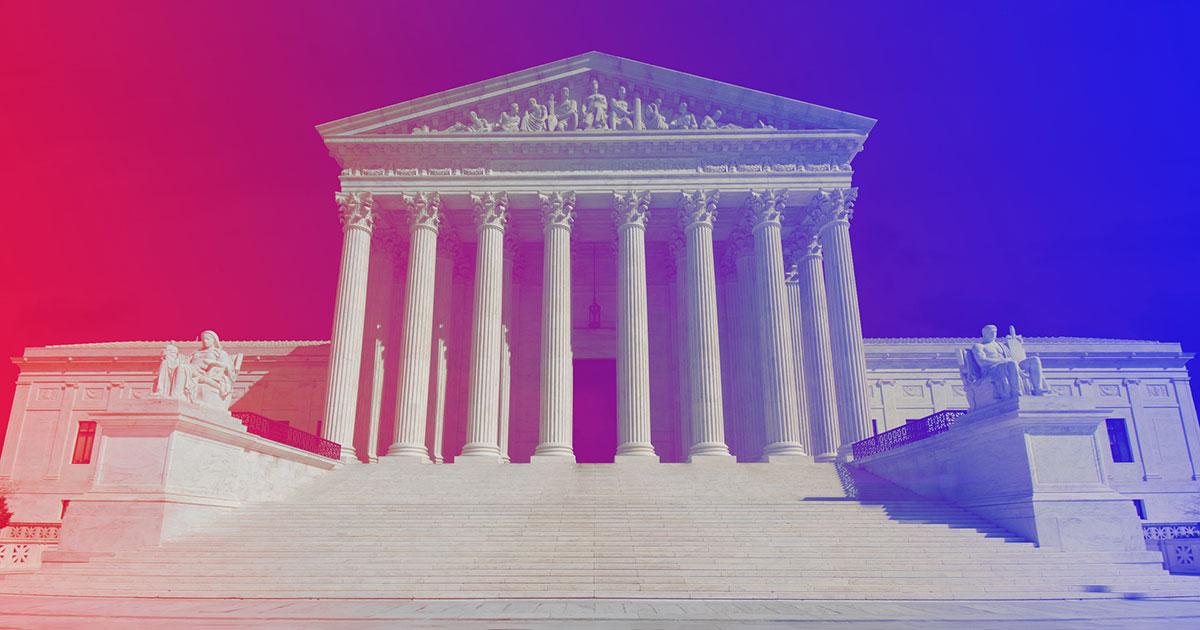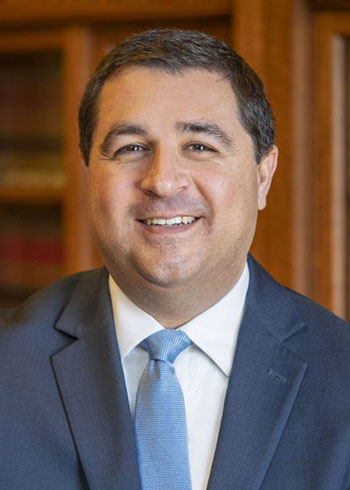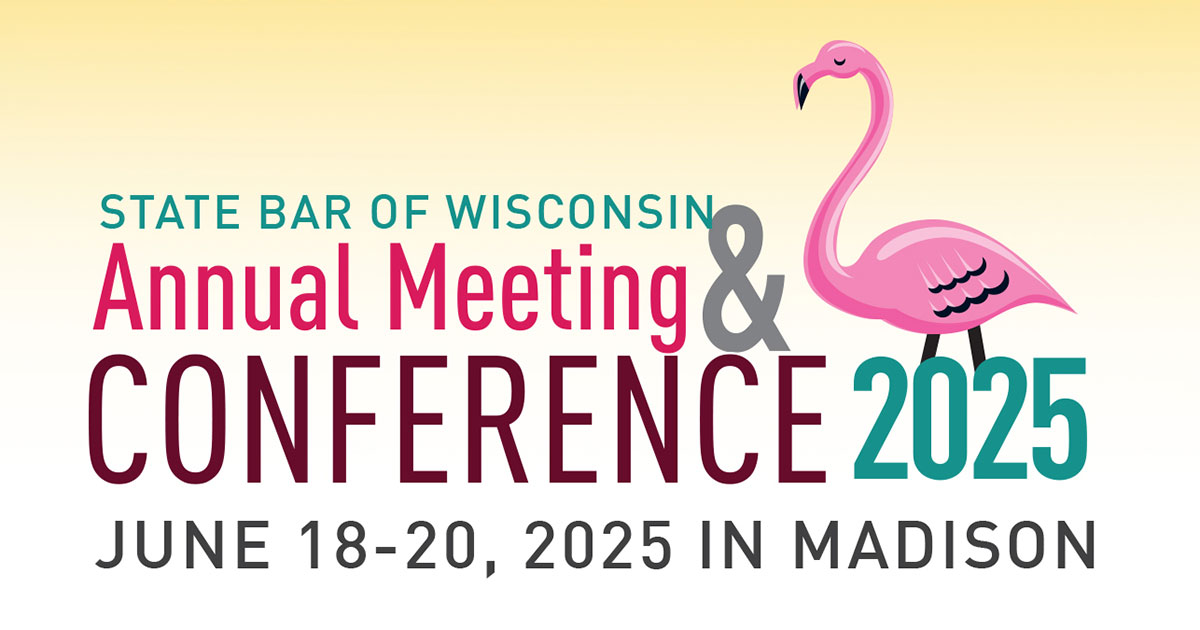
April 23, 2025 – As the summer heats up, so will the opinions from the U.S. Supreme Court, answering hot-button questions, such as statewide bans of sex-transition medical treatment for minors, “LGBTQ-Inclusive books” in elementary school, and standards for employment discrimination and agency actions.
The 2024-25 Term includes about 60 argued cases, of which two-thirds remain waiting for opinions. Here’s a selection from those remaining cases.
Hot-Button Social Issues
United States v. Skrmetti will decide the constitutionality of laws in Tennessee and Kentucky that ban medical treatments to minors for gender dysphoria, when an individual feels their gender doesn’t match their biological sex.
 Jay D. Jerde, Mitchell Hamline 2006, is a legal writer for the State Bar of Wisconsin, Madison. He can be reached by
email or by phone at (608) 250-6126.
Jay D. Jerde, Mitchell Hamline 2006, is a legal writer for the State Bar of Wisconsin, Madison. He can be reached by
email or by phone at (608) 250-6126.
Transgender minors, their parents, and a physician argue that the ban violates equal protection rights and should be subject to heightened scrutiny. The U.S. Solicitor General appealed to the Supreme Court.
At oral argument, Amy Howe reported in SCOTUSblog, that “nearly all of the court’s conservative majority expressed skepticism about a challenge to Tennessee’s ban on puberty blockers and hormone therapy for transgender teenagers.”
They “voiced concerns about whether legislatures, rather than judges, are best suited to make determinations about what they saw as the complicated medical issues underlying the dispute,” Howe wrote, like concerns raised in
Dobbs v. Jackson Women’s Health Organization that overturned the constitutional right to abortion.
Mahmoud v. Taylor fields constitutional claims that a county board of education violated parents’ First Amendment rights of free exercise of religion.
Montgomery County Public Schools in Maryland adopted a curriculum of “LGBTQ-Inclusive Books as part of the English Language Arts Curriculum” with teachers given options on how to integrate them in the classroom.
Although the books serve to teach language arts to students as young as three- and four-year-olds, the stories themselves portray homosexual, transgender, and nonbinary characters.
“Almost as soon as” the district adopted the books during the 2022-23 academic year, “numerous teachers, administrators, and parents began voicing concerns about their efficacy and age appropriateness.”
The school board did not allow parents to opt out of the books’ use for their children, which the parents seek in this review.
The U.S. Court of Appeals for the Fourth Circuit found that the parents had not shown harm to justify the injunction they sought.
Ames v. Ohio Department of Youth Services considers whether a majority-group plaintiff must show “background circumstances” to support a reverse discrimination claim.
Marlean A. Ames argues that she, a heterosexual, suffered Title VII reverse sexual orientation discrimination and sex discrimination from her employer.
After favorable performance evaluations and promotions, she claims her employer denied promotion for a job given to a gay woman with less experience. Ames then lost her Program Administrator position and was demoted. A gay man filled her former job.
Current law requires “background circumstances” in such unusual claims, the one element not proven according to the U.S. Court of Appeals for the Sixth Circuit.
Five circuits require the extra facts, two have rejected it, and five don’t apply the requirement.
At oral argument, Howe wrote, “a solid majority (if not all) of the justices appeared ready to overturn a ruling by a federal appeals court that required Ames to meet a higher bar for her case to go forward than if she had been a member of a minority group.”
Crime
Hewitt v. United States seeks to resolve a circuit split on how the First Step Act applies for sentences imposed before the Act took effect, which were vacated, followed by resentencing after the Act’s 2018 enactment. Three circuits say the Act allows sentence reductions in those cases, while two do not.
Tony R. Hewitt, Corey Deyon Duffee, and Jarvis Dupree Ross are from one of those circuits, the Fifth Circuit, that decided it did not.
They seek sentencing reductions. After their initial 2009 sentencings, a direct appeal resulted in reversal of some convictions and a remand for resentencing in 2012. A subsequent U.S. Supreme Court decision justified review of the 2012 sentences, which the district court vacated in 2020.
In the 2020 resentencings, the defendants argued that the Act subjected them only to a five-year mandatory minimum sentence.
The government initially disagreed because the defendants were serving valid sentences in 2018, although it changed its position for Hewitt’s resentencing. The U.S. Court of Appeals for the Fifth Circuit, however, was unpersuaded.
Esteras v. United States involves three appeals of district court orders revoking supervised release and the resulting sentences. In each, the defendants believed the sentencing court erroneously considered one of three statutory factors.
They object that the court considered three subfactors in 18 U.S.C. section 3553(a)(2)(A) – “the seriousness of the offence,” “respect for the law,” and “just punishment” – because 18 U.S.C. section 3583(e) authorizing revocation of supervised release excludes those subfactors.
Relying on precedent, the U.S. Court of Appeals for the Sixth Circuit affirmed the district court and is among the five circuits allowing consideration of the subfactors. Four circuits have said otherwise.
Smith & Wesson Brands, Inc. v. Estados Unidos Mexicanos, although a civil complaint, addresses the effect of gun manufacturers on crime in Mexico.
The Mexican government sued seven gun manufacturers and one gun distributor for harm caused from the sale of guns in Mexico.
Mexico has strict gun-control laws – no more than 50 gun permits issued in a year and only one gun store – yet has the third-most gun-related deaths in the world. The resulting crime increased medical and law enforcement costs, burdens on the judicial system, and losses to the economy.
The government argues that the defendants produce more than 68% of the U.S. guns trafficked into Mexico, a total of between 342,000 and 597,000 a year with the companies’ knowledge. The companies profit by designing their products to military grade, which appeals to criminal cartels operating in Mexico.
The government also argues that the defendants aid and abet sale by dealers in knowing violation of federal and state laws.
The Protection of Lawful Commerce in Arms Act may protect gun manufacturers – unless a manufacturer or seller knowingly violated an applicable statute.
Gun makers have argued that “the lawsuit ‘challenges how the American firearms industry has openly operated in broad daylight for years,’” Howe wrote. Based on what Howe heard at oral arguments, the court seemed inclined to agree with the gun makers.
Administrative Law
Federal Communications Commission v. Consumers’ Research tackles a component of the administrative state – the nondelegation doctrine – whether Congress went too far in delegating its constitutional duties to an executive branch agency.
The Telecommunications Act of 1996 created a Universal Service Fee on telecommunications carriers. The Act delegated Congress’ taxing power to the FCC, which then “subdelegated the taxing power to a private corporation.” For-profit telecommunications companies then determined how much the consumers pay to contribute to the fund.
The Universal Service Fee has had “astronomical growth.” The FCC’s inspector general described the fee as full of waste and fraud, according to the U.S. Court of Appeals for the Fifth Circuit.
The Fifth Circuit agreed that Congress wrongfully delegated its power to tax because the Act failed to provide “an intelligible principle to guide FCC’s discretion” and “impermissibly delegated the taxing power to private entities,” rendering the law unconstitutional.
At oral arguments, Howe reported that a majority seemed ready to support the FCC. Conservative Justices Clarence Thomas and Samuel Alito, however, showed sympathy to fee critics.
Justice Neil Gorsuch said the case resembles a 1935 case that used the nondelegation doctrine to strike down a law. “But it seemed unlikely that Gorsuch had four colleagues ready to join him,” Howe said.
Seven County Infrastructure Coalition v. Eagle County, Colorado will resolve the review that county and environmental organizations sought of a Surface Transportation Board (STB) final order based on the environmental impact statement (EIS) and other environmental reviews for a new rail line.
Complainants argue that the rail line will affect them even though the county is located “downline” of the proposed line’s construction area, and the STB failed to take those environmental effects into consideration.
Five circuits have held that an agency need not consider distant effects beyond an agency’s regulatory authority in an EIS, while two circuits require review of any reasonably foreseeable impact.
The U.S. Court of Appeals for the District of Columbia Circuit concluded that the poor environmental review showed arbitrariness and vacated the final exemption order and parts of the EIS and biological opinion. It held that the STB cannot avoid environmental review based on lacking authority to control distant environmental effects.
Attorney General Kaul to Discuss Multistate Cases at AMC

Wisconsin Attorney General Josh Kaul will discuss “multistate litigation against the federal government” as the opening plenary speaker at the
Annual Meeting & Conference (AMC), June 18-20 in Madison.
There has been a recent flurry of multistate legal challenges to federal government actions. Join us for a keynote presentation in which Kaul will answer questions relating to some of the multistate cases in which the Wisconsin Department of Justice is involved.
At the AMC, earn up to 11.5 CLE, EPR, LPM, and LAU credits (plus CLM credits for Wisconsin Association of Legal Administrators members), on a vast array of topics for every practice area and experience level.
Earn an additional 7.5 credits by watching select complimentary webcast replays in July and August.
AMC Registration: Reserve Your Spot by May 1 for Best Rate
Save on your registration when you register by the early-bird deadline of May 1, 2025.
Visit the AMC website for more information on registration rates. Your lowest possible registration rate will be displayed once you’re logged in to wisbar.org.
Newcomer to the State Bar’s Annual Meeting and Conference? First-time member attendees save an additional $100 off registration.
To register for AMC:

